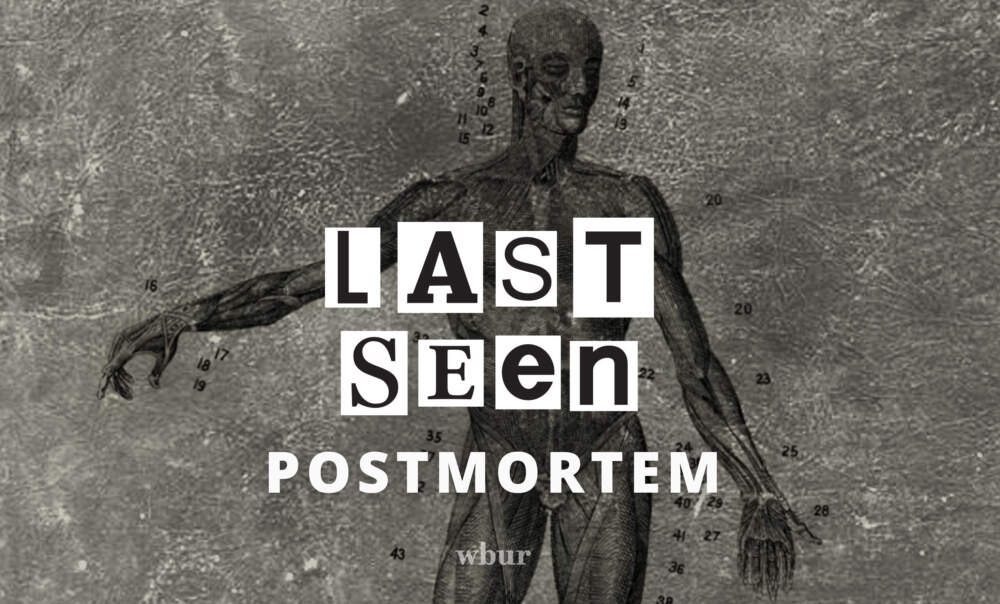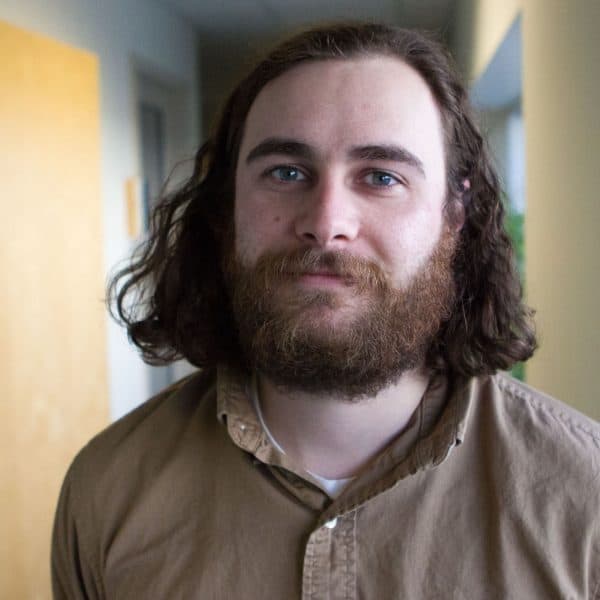Advertisement
Introducing 'Postmortem': The stolen bodies of Harvard
Resume
Hundreds of people donated their bodies to Harvard Medical School hoping to advance science and train the next generation of doctors. Meanwhile, prosecutors say that for years the school's morgue manager treated it like a storefront, letting potential customers browse body parts and bringing home skin and brains to be shipped out to people across the country.
Last year's arrest of the morgue manager, Cedric Lodge, exposed a nationwide network of human remains swapping that ensnared Harvard and lay bare the school’s broken promises to donors.
In this five-part narrative series, host and reporter Ally Jarmanning explains what happened at Harvard, talks to donor families about their interrupted grief, and meets with human remains collectors to find out why they’re interested in this macabre field. We explore the dark origins of our nation’s medical schools. And we try to answer the haunting questions that drive the series: How should we treat the dead? And who gets to decide?
All five episodes coming soon. Follow Last Seen wherever you get your podcasts.
Read the transcript:
Trailer:
Ally Jarmanning: I have been trying to work on a story about the Harvard morgue. I'm sure you've heard about the scandal involving the morgue recently?
Paul Levy: No.
Ally Jarmanning: Oh, um, well, I will fill you in.
News reel: New at five. Police arrested a man from Pennsylvania's mid state for allegedly buying body parts through Facebook
Seán McCormack: It is one of the most bizarre things I've ever seen.
Buckets of body parts found in a Pennsylvania basement will lead the FBI to the campus of the nation’s most prestigious university.
News reel: Breaking news that we've been following all day. A huge story here. Human body parts taken by a manager at the Harvard Medical School morgue and then sold to customers online
News reel: Investigators say the body parts came from cadavers donated to Harvard and used for educational purposes.
Adam Medford: That's Harvard. You would think that your family would be safe going there.
Ally Jarmanning: What's the inventory at your house right now? How many do you have?
Collector: Let me count. So nine full human skulls, one articulated, fragmented human skull.
This story gives a glimpse into a macabre and lucrative world, a nationwide network of human remains trading.
Mike Drake: So my first skull is right there on the top shelf. I've had others over the years but that's my first and my favorite
Ally Jarmanning: How much does it cost to purchase a fetal skeleton?
Justin Capps: Like that? About seven grand.
Some of these collectors give these objects names.
Sonya Cobb: We got Tyler and then I decided I needed an entire skeleton.
Body parts, though, come from people. They had real names. Real families.
Paula Peltonovich: Imagine if that's your father or your mother.
Lara Szent-Gyorgyi: All I can think of is how embarrassed and furious she would be.
Amber Haggstrom: This should have never, ever happened. This is the world's most reputable school.
There’s a court case and a whole bunch of people who don’t want to talk about it.
Ally Jarmanning: He’s here but he’s not going to answer
There are other questions that have been haunting me: How should we treat the dead? And who gets to decide?
Dr. Tom Champney: Once you die, you are no longer human and you are now property. There should be some middle ground where we treat deceased tissues differently than we that we treat old refrigerators..
I’m host and reporter Ally Jarmanning. Join me for a new season on Last Seen "Postmortem: The Stolen Bodies of Harvard."
All five episodes coming soon. Follow Last Seen wherever you get your podcasts.

